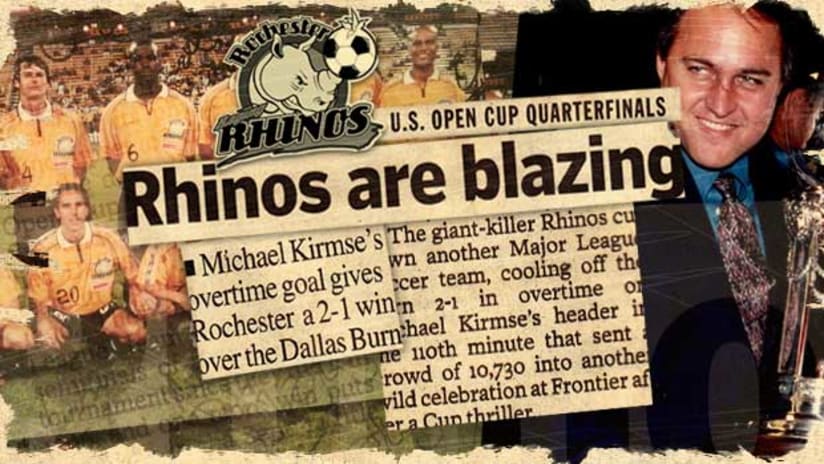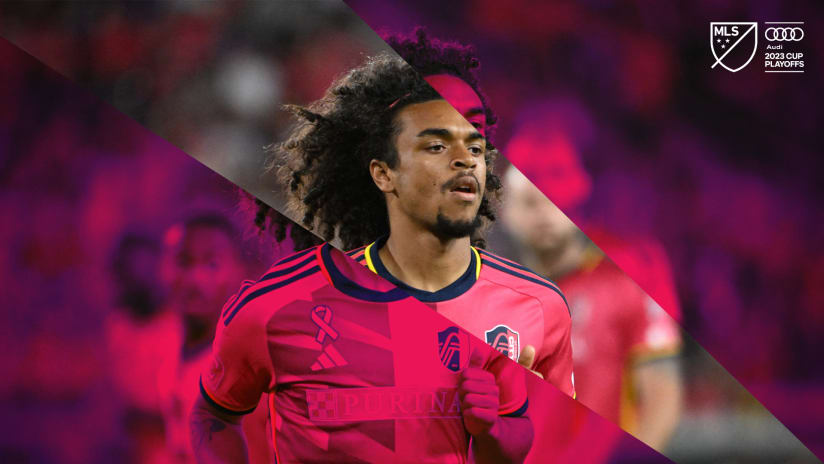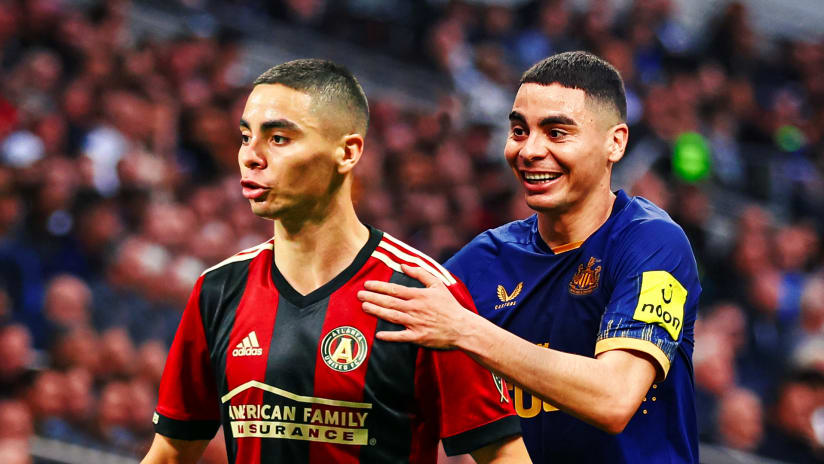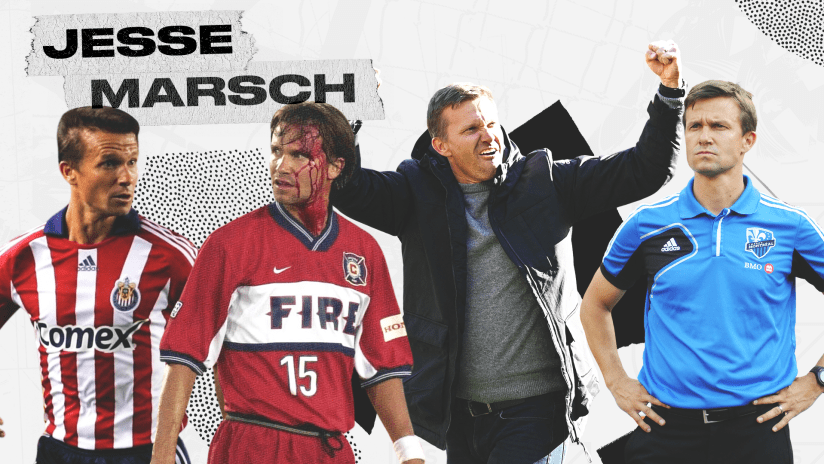THE WORD is MLSsoccer.com's long-form series. Ahead of the US Open Cup Fourth Round, during which all 19 US-based MLS teams enter the tournament, MLSsoccer.com writer Dave Zeitlin looks at the last non-MLS team to win the title, the 1999 Rochester Raging Rhinos, and whether another underdog can replicate the feat.
This article was first published in June, 2013.
All it took was a quick glance around the locker room for Pat Ercoli to know he was in trouble.
Ercoli, who had replaced Jesse Myers as head coach of the Rochester Rhinos just 10 days earlier in the wake of the team’s dismal 1-6-1 start to their USL PRO season, was about to lead the reeling squad into battle against the New England Revolution in the third-round of the 2013 US Open Cup.
The Revs weren't only a top-flight team, of course, but they were also red-hot, coming off two straight shutout wins. Even more daunting: Ercoli was forced to sign three new players just for the May 29 Open Cup game because his battered squad could only suit up 13 regulars. One of those players was Brian Knapp, who was working as a landscaper when he got a call from Ercoli. He started on the left side of the midfield.
“If we had gotten through that game,” Ercoli says, “it would have been a minor miracle.”
Predictably, the Rhinos didn’t get through that game, dropping a 5-1 decision to the Revolution. But “minor miracles” can certainly happen in the US Open Cup, the famed 100-year-old knockout tournament that matches up American teams from all levels, and resumes Wednesday.
And if anyone knows that, it’s Ercoli, who also coached Rochester from 1996 to 2004 and today serves as the franchise’s president.
So before the Rhinos left the locker room to face the Revs in front of their home fans at Sahlen’s Stadium, he showed his new players a championship ring and told them a story.
He told them about the summer of ’99. He told them about how he coached the Rhinos to four straight stunning upsets over MLS teams in the US Open Cup. He told them how that Rochester team remains the only lower-division side to win the US Open Cup since MLS began play in 1996.
And, he told them, anything is possible.
*
Let’s start by saying this: The 1999 Rochester Raging Rhinos weren’t a merry band of underdog misfits like in those clichéd sports movies. There were a lot of talented and experienced players on the team, some of whom could have played in MLS and a couple of others who later did.
They usually played in front of at least 10,000 fans in their home stadium, nestled in an upstate New York community rich with soccer history. They were a dominant force in what was then called the A-League (now the USL PRO), capturing titles in 1998, 2000 and 2001. And in the franchise’s inaugural season in 1996, they stormed to the US Open Cup final before losing to D.C. United.
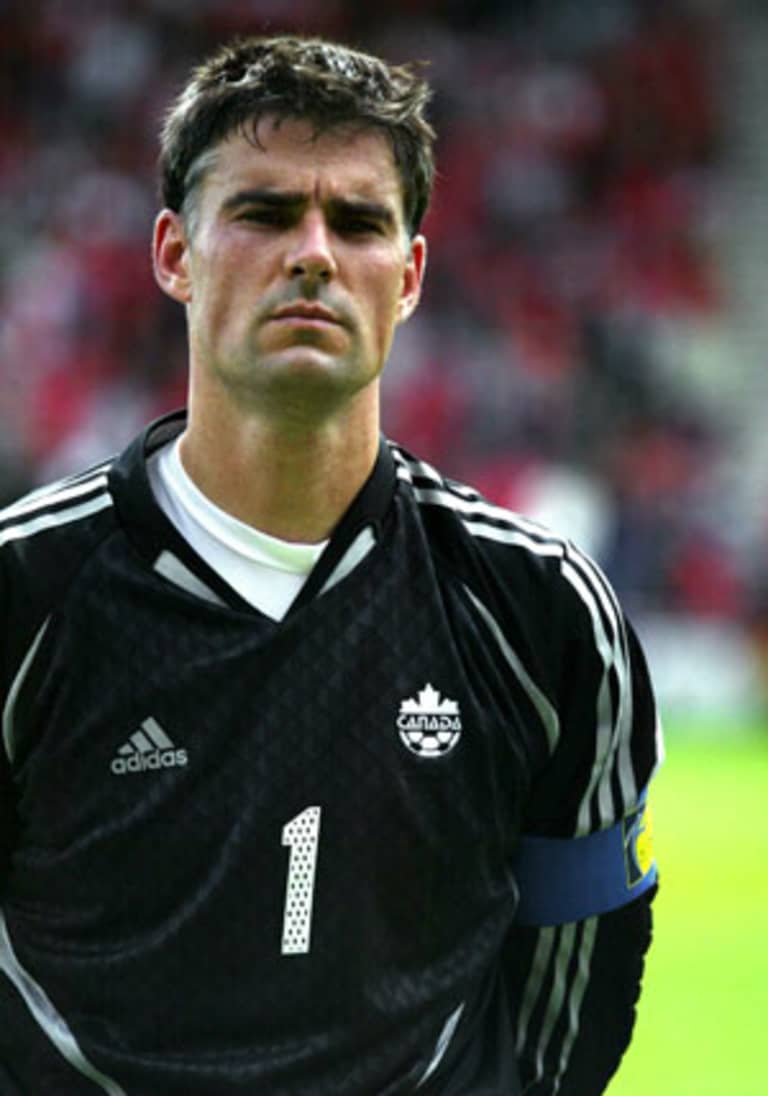
Pat Onstad won two three MLS Cups and was a regular with the Canadian national team for years, but he's perhaps best known in Rochester soccer circles as a hero for the 1999 US Open Cup champion Raging Rhinos. How did they do it? "We gooned it up a little bit,” Onstad says. (Action Images.)
But let’s also be clear about one more thing: as good as the Rhinos were and as young as Major League Soccer was at that time, Rochester still weren’t expected to beat any MLS teams during their magical 1999 US Open Cup run, let alone four of them in succession.
“We had lightning in a bottle in ’99,” says starting goalkeeper Pat Onstad, who went on to play in MLS for nine years and today serves as the chief scout for Toronto FC. “We had a chip on their shoulders. And we were trying to prove we were able to compete at that level.”
That chip on the shoulder was magnified in a very big way when the Rhinos beat the amateur New York Freedom to set up a round-of-16 showdown with the Chicago Fire.
The Rhinos welcomed the Fire to tiny Frontier Field (their home pitch before Sahlen’s Stadium was built in 2006). And if it wasn’t hard enough for Chicago to play on a field Onstad joked was the “size of a postage stamp,” they also had to deal with the Rhinos playing an extremely physical brand of soccer that led to 45 fouls, seven yellow cards and three ejections.
“The best way to put it, being Canadian, is we gooned it up a little bit,” Onstad says with a laugh.
The strategy worked. The Rhinos proved in short order that they wouldn’t be pushed around by the Fire, who just one year earlier captured both the MLS and US Open Cup titles. And, in the end, they ousted the defending champs from the tournament, riding a 51st-minute goal from Yari Allnutt to a 1-0 victory.
“That was a big win for us,” Onstad recalls. “There was no talk about us winning the whole thing when we played the first game, that’s for sure. But when we beat Chicago, we walked into the locker room and were like, ‘You know what? This should be our goal. We should at least get to the finals of this thing.’”
READ: Revs to host Red Bulls at sold-out Harvard Stadium in US Open Cup
The Rhinos were at home again in the quarterfinals, matched up against the Dallas Burn. But by the time that match rolled around the Rhinos’ reputation had reached Burn head coach Dave Dir, who said the Rhinos played like “11 Dennis Rodmans” and instructed his team to try to get into their heads.
Still, the Burn fared no better than the Fire. Rochester reserve Michael Kirmse, who assisted on Allnutt’s goal against Chicago, netted a sudden-death game-winner to lift the Rhinos to a thrilling 2-1 overtime victory in front of 10,730 fans at Frontier Field.
“That was really one of the highlights of my career,” says Kirmse, now the Rhinos’ color commentator for TV broadcasts. “I didn’t know what I was doing [after scoring]. I ran to the corner and just started high-stepping from the endline all the way to midfield. And the crowd went nuts.”
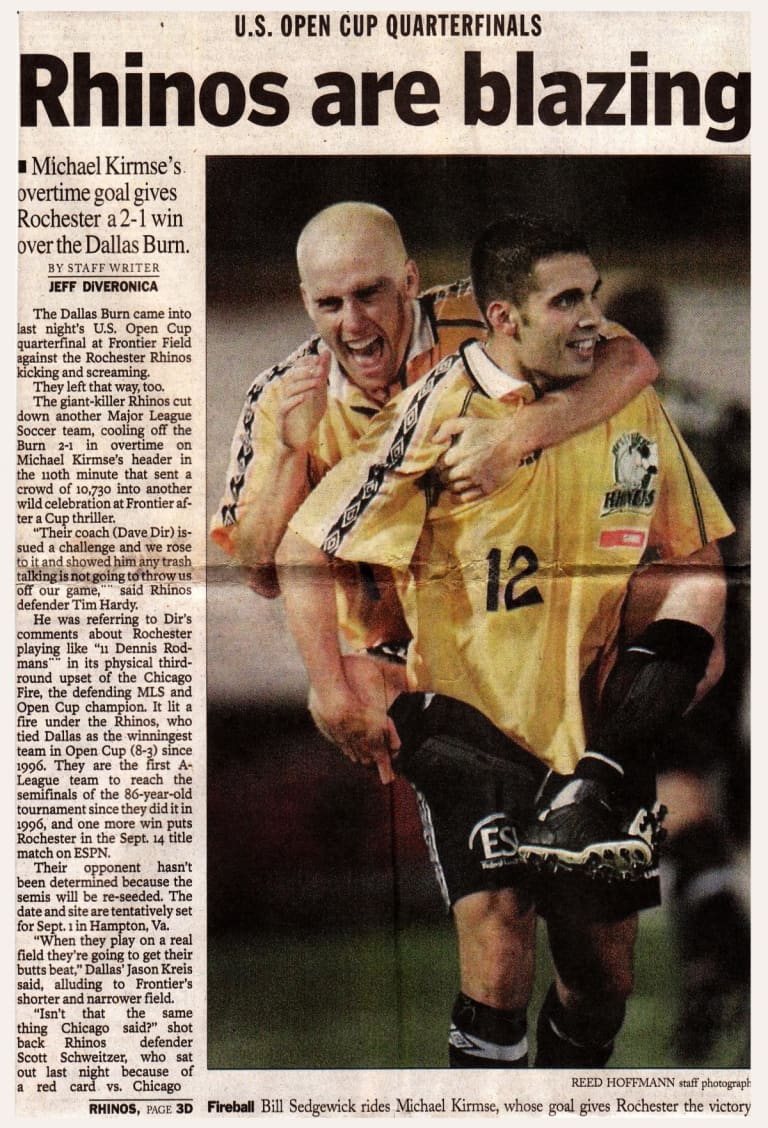
The front page of the sports section of the Rochester Democrat and Chronicle after the Raging Rhinos beat Dallas in the 1999 US Open Cup quarterfinals. Michael Kirmse scored the game-winning goal, and his celebration drew the ire of current Real Salt Lake head coach Jason Kreis. (Photo courtesy of Michael Kirmse)
Then-Dallas striker Jason Kreis, now the head coach of Real Salt Lake, took the celebration personal. He bitterly declared to a local newspaper writer after the match: “When they play on a real field, they’re going to get their butts beat.”
The Rhinos got that chance when they were pitted against the Columbus Crew in a semifinal matchup at the Virginia Beach SportsPlex. But the neutral site posed its own set of problems: A hurricane was on its way to the area, and 30 mph winds whipped through the field when the game began.
Ercoli remembers Rochester captain Tommy Tanner looking at him crazily when he told him he wanted to go against the wind in the first half. But the plan worked in their favor when the Rhinos managed to get to halftime with the score deadlocked at 0-0. And after Robert Warzycha – the Crew’s current head coach – and Brian West scored to put Columbus ahead 2-1 (Darren Tilley put one in for Rochester), the Rhinos used the wind at their back to erase a 2-1 deficit in the final minutes thanks to dramatic goals from two unlikely sources: defenders Scott Schweitzer and Tim Hardy.
Schweitzer’s 86th-minute goal came on a free kick from 27 yards out that deflected into the net, before Hardy provided the game-winner in injury time when he flew down the left flank and slotted one past Crew goalkeeper Mark Dougherty.
At that point, after setting up a date with the Colorado Rapids in a nationally televised US Open Cup championship game on ESPN, the Rhinos knew something special was brewing.
“Going against Colorado, we thought it was destiny,” Ercoli says. “It was meant to be.”
*
Before the Rhinos left Rochester and flew to Columbus Crew Stadium for their mid-September showdown with the top-seeded Colorado Rapids (who beat another lower-division team – the Charleston Battery – in the USOC semifinals), Doug Miller approached Ercoli with an honest question.
Despite winning A-League MVP honors just two years earlier, the high-scoring forward had seen his playing time diminish during that 1999 season, and he needed to ask Ercoli if it was even worth it for him to fly his wife out for the trip to Columbus.
“No,” Miller remembers his coach bluntly telling him. “You probably won’t play.”
The answer made Miller’s heart sink, but it wasn’t surprising. He and Ercoli had been at odds much of the past two seasons, and Miller was almost certain he wouldn’t have his contract renewed following the 1999 campaign.
But Miller prepared as he always did under the impression he might get his chance, and when Ercoli changed his mind and decided to insert the star striker into a scoreless game in the 62nd minute, Miller had only one thought.
“I knew I was going to score,” he says.
Just four minutes after coming on, Miller netted the eventual game-winner after receiving a pass from midfielder Bill Sedgewick near the end line and slotting a tough-angle shot through the legs of Rapids goalkeeper Ian Feuer. An elated Miller then ripped off his jersey and ran like wild across the field, weaving around celebrating teammates like he was an NFL running back breaking tackles.
“Although I didn’t believe what I was going through was fair, I knew I had to battle through it,” Miller says. “It was vindication when that opportunity came through.”
READ: Jeff Bradley: This is what the US Open Cup is
Former Rapids defender and current Sporting Kansas City head coach Peter Vermes was the defender on Miller’s goal, but his late challenge right before Miller took the shot wasn’t enough to stave off history. Like his other MLS coaching brethren who were eliminated by the Rhinos, Vermes was not happy about it at the time. And he’s still not happy about it today.
“I can’t remember exactly how it happened but I know that a guy came inside and took a shot,” Vermes says 14 years later. “I was near the ball on the play. The ball went and it kind of hit off [the goalkeeper’s] leg and went in the goal. It wasn’t like some upper-90 howitzer. It was a shame.”
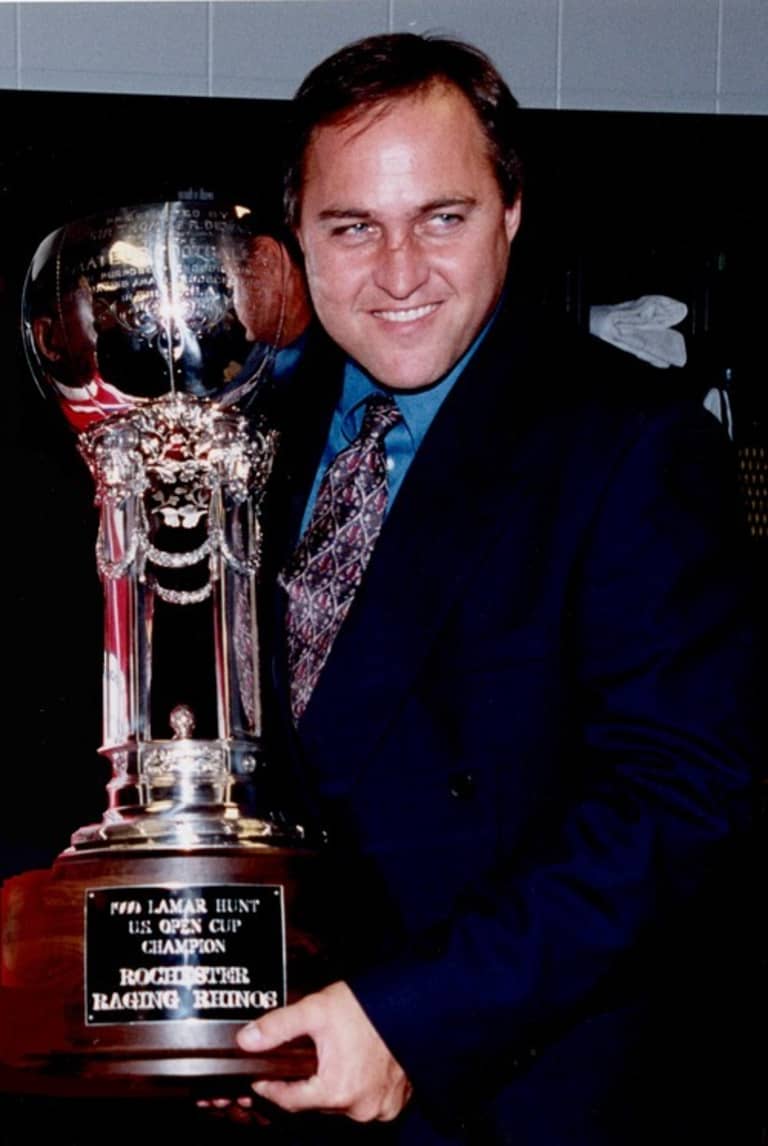
Rochester head coach Pat Ercoli celebrates with the US Open Cup trophy after the team's improbable run in 1999. After retuning to the position earlier this year, he used the story as a motivational tool when the Rhinos entered the 2013 edition of the tournament. (Photo courtesy of Pat Ercoli)
Vermes also lamented the Rapids missing “so many sitters” in the USOC final – which, of course, had a lot to do with the brilliant performance of Onstad. In the 70th minute, the Canadian ’keeper made probably his best save of the entire tournament when Rapids star Paul Bravo (now the team's technical director) was thwarted on a point-blank shot from about eight yards out.
“I remember sticking my foot out,” Onstad says. “And, as they say, ‘a kick save and a beaut.’”
Onstad made other big saves to preserve the shutout. And when Allnutt added an insurance goal right before the final whistle – on another Kirmse assist – it was celebration time for the five busloads of Rochester fans that made the trip to Columbus, as well as all of the Crew fans that were pulling for the underdogs.
READ: MLSnet.com's official match report from the Rhinos' upset win
“We went into a defensive shell and if not for Pat Onstad, we could have lost that last game in the final minutes, 3-2,” Kirmse says. “Colorado was just pounding on us.”
It was Miller, however, who took home MVP honors for the game. It could have been a fitting end to his career with the Rhinos because, as he predicted, he was released after the season. But his determination helped him return to Rochester and play four more seasons with the Rhinos from 2003-06. And today, in addition to running an academy and coaching 22 youth teams in Rochester, the 44-year-old still plays competitively as the captain and top scorer for the Rochester Lancers of the Major Indoor Soccer League.
But despite being something of a local legend in Rochester, Miller still carries with him the underdog spirit that defined the Rochester Rhinos during their Goliath-smashing days of ’99.
“I always feel like David,” Miller says. “At every point in my career, there’s been a point where someone told me I couldn’t do it. When I was 32 and came out of retirement the first time in 2003, they told me I was too old and I led the league scoring. In 1999, people said that I’d never play for the Rhinos again. I did. When people tell me I can’t do something, I enjoy that. Just like when they said David wouldn’t beat Goliath.”
*
Having grown up in England, Ricky Hill doesn’t know the story of the 1999 Rochester Rhinos. But he does know a thing or two about being the underdog team in knockout tournaments. While playing with Luton Town, he enjoyed many memorable runs in the FA Cup (an older version of the US Open Cup that pits teams from all levels of English football), losing to Everton in the 1985 semifinals and to Wimbledon in the 1988 semifinals.
Also in 1988, Hill started in the central midfield on the Luton Town side that stunned Arsenal in the final of the Carling Cup (another one of England’s single-elimination tournaments).
“We were a smaller club not expected to have that good of a run in Cup competitions,” Hill says. “But we always did.”
These days, Hill is back in a familiar underdog role as the head coach of the Tampa Bay Rowdies, of the second-tier North American Soccer League. And just like in the ’80s, he’s thriving in that role.
Two weeks ago, in what’s been the biggest upset so far of this year’s tournament, the Rowdies knocked off a Seattle Sounders team that played in the US Open Cup final in each of the last four years.
“If you looked with the naked eye, an MLS side should beat an NASL side,” Hill says. “But in Cup football, that type of thinking sometimes goes out the window – because we’re going to be desperate to try to maintain a run in the competition as long as we can.”
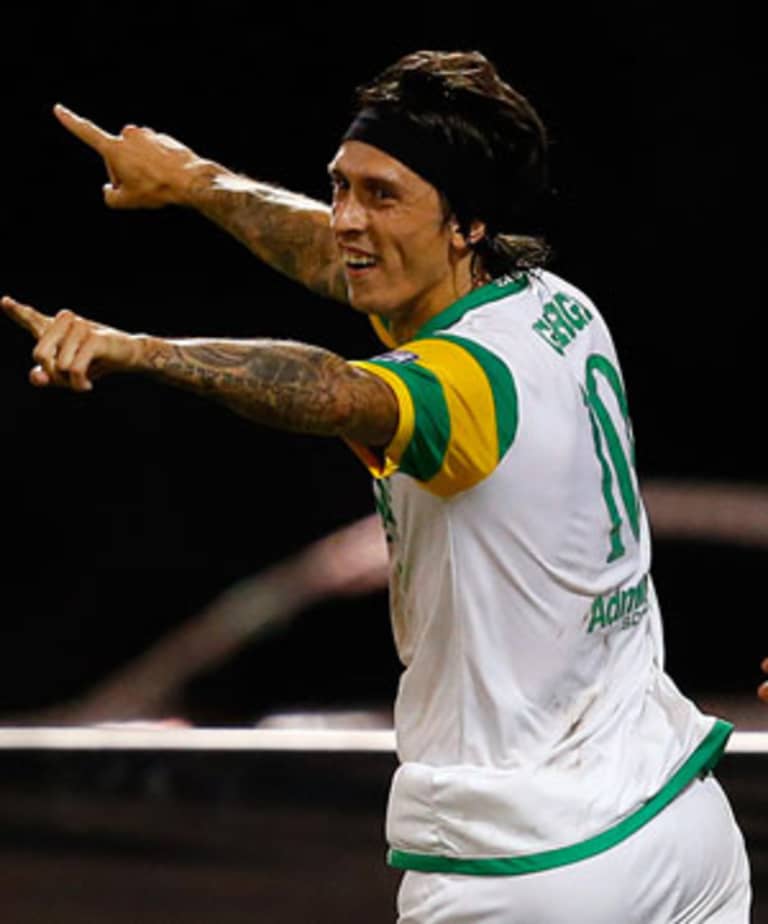
Tampa Bay Rowdies forward Georgi Hristov celebrates during the team's upset win over the Seattle Sounders in the third round of the US Open Cup last month. The Rowdies - who won the NASL title last year - might be the best chance for a non-MLS team to win the title this year. (Photo courtesy of Tampa Bay Rowdies)
Desperate or not, the Rowdies boast a very talented team, just like the Rhinos of ’99. The same can be said of the other lower-division squads that pulled off third-round upsets two weeks ago: the Carolina Railhawks of the NASL and the Charleston Battery and Orlando City of the third-tier USL PRO.
READ: Vermes talks Orlando City's MLS prospects ahead of USOC showdown
But can any of them keep their runs going when the Open Cup continues with fourth-round matchups on Wednesday? The Rhinos blazed the trail, but will these teams be able to follow the road map?
“It would be a great lift for everyone outside MLS if a team like us, or Carolina, or Orlando can go and get to the final and actually win it,” Hill says. “It would only be good for the future of American soccer.”
Times have changed, though. Back in 1999, one could argue the A-League was a serious contender with MLS, at least in terms of fan support. The Rhinos were such a thriving franchise that they made a serious push to join Major League Soccer (throughout their US Open Cup run, the loudest chant among Rochester fans was: “If you can’t join ’em, beat ’em.”). And players like Doug Miller were offered a contract by MLS before deciding it was more financially viable to keep playing in both the A-League and MISL, as some of his teammates did.
If the idea of a player turning down an MLS contract to continue playing indoor soccer seems ludicrous, that’s a testament to how far the league has come in the past 15 years in terms of salaries, level of play and prestige. And that also means that today’s lower-division teams – even if they’ve improved too – face a much more difficult challenge in attempting to knock off MLS sides.
“I think from an actual competitive standpoint, MLS has grown to the point where there’s a big separation between the top of MLS – even the bottom of MLS – and the top of the other leagues,” says Brendan Burke, who works as both an assistant coach with the Philadelphia Union and as the head coach of Reading United AC of the USL PDL. “I think all things being equal, if everyone puts their best teams on the field, the MLS should clear out most of the lower-league teams by the semifinal stage.”
READ:Timbers host underdog Tampa Bay in USOC fourth-round during rough 10-day stretch
There are, of course, other factors at play. Some MLS teams opt to focus more on league play and sit some of their regulars in the Open Cup, making it somewhat of an easier road for certain squads. And setting aside the Cinderella mentality that fuels the underdogs, there’s a more tangible idea that players on lower-division teams are working to get noticed by MLS teams. Even entire clubs, in particular Orlando City, are trying to prove they belong in the big time.
But can another lower-division team accomplish what the Rhinos did in 1999?
“It was a pretty remarkable run for them,” says Philadelphia Union manager John Hackworth, who played in a few Open Cups while with the Carolina Crunch and Carolina Dynamo. “And I think it can happen again some day.”
*
Since 1999 there have been a few non-MLS teams that have made deep runs in the US Open Cup, with the most prime example coming in 2008, when the Charleston Battery advanced to the finals before losing to D.C. United.
And whenever those kinds of runs happen, the 1999 Rhinos pay close attention. In that respect, Miller joked they’re kind of like members of the 1972 Miami Dolphins, who relish the fact that they remain the only unbeaten team in NFL history.
“It piques my interest every year to make sure nobody else does it,” Ercoli says of watching the Open Cup. “We would like it to remain so we’re the only one. There’s certainly a lot of prestige in that.”
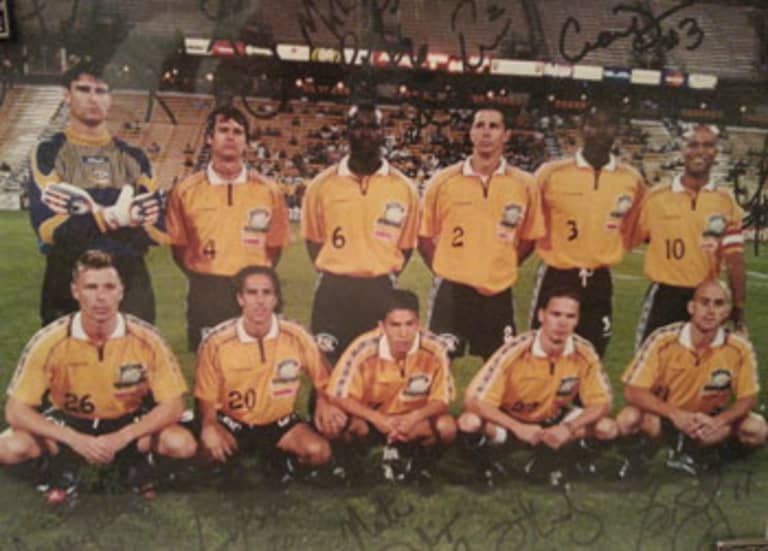
A team shot of the Raging Rhinos during their 1999 USOC title run. They'll be honored into the Rhinos Hall of the Fame later this month. (Photo courtesy of Pat Ercoli)
Other members on the '99 team expressed more of a sense of solidarity with their lower-division brethren, saying they wouldn’t necessarily root against them in the later rounds. Besides, even if the Rhinos lose their title of the only non-MLS team to win the US Open Cup in the MLS era, they will always be the first. And on June 29, their legacy will be further solidified in Rochester lore when the 1999 Open Cup team is inducted into the Rhinos Hall of Fame.
“We put Rochester on the soccer map,” Ercoli says. “For that reason alone, [winning the Open Cup] was my fondest memory for me.”
The reunion in a couple of weeks will be just as sweet for the players, who will surely share memories and recant tales from 14 years ago. Perhaps they’ll laugh about how defenders and reserves kept finding a way to score. Or how Onstad stood on his head.
Or how they made unlikely history, forever giving the underdog a rallying cry when they need it most.
“I always tell people the best team of the century was the Rochester Rhinos,” Miller says. “They say, ‘What do you mean?’ I say, ‘Well, we won it all in 1999. So we were the best.’
“We closed the century mark as the best."

